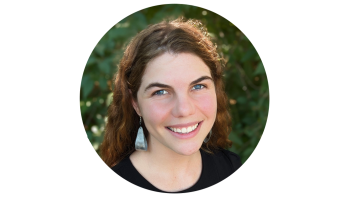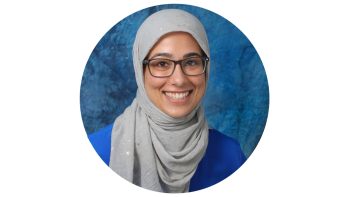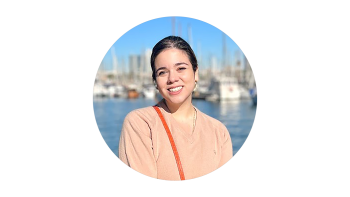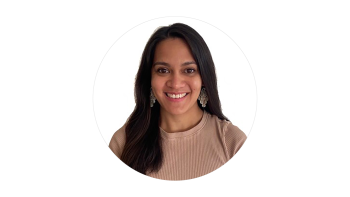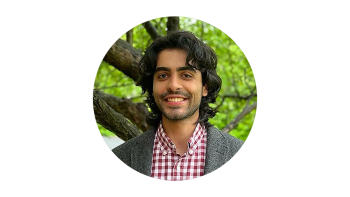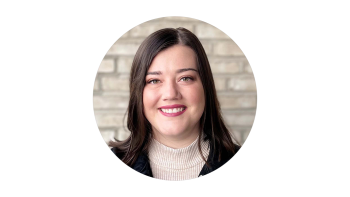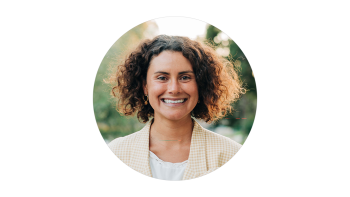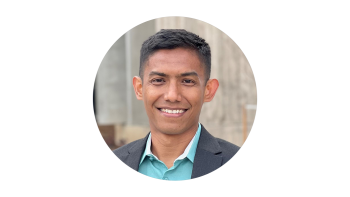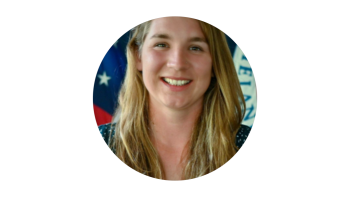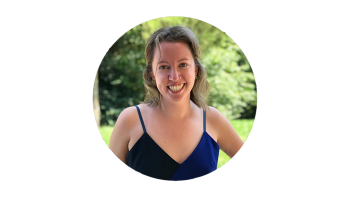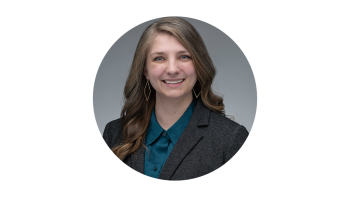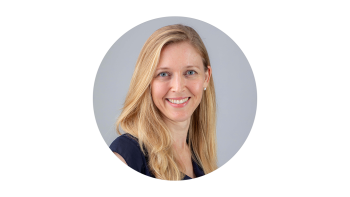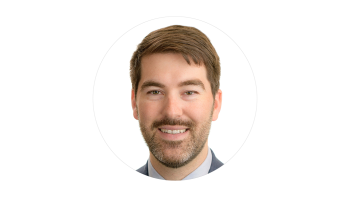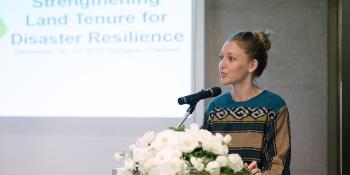
Habitat-USAID/BHA's International Humanitarian Shelter and Settlements fellowship cohort
Learn about the inspiring work of the 2022-2024 fellowship cohorts of students and professionals
The Humanitarian Shelter and Settlements (HS&S) Fellowship 2022 research cohort traveled to Syria, Peru and Lebanon. In 2023, the research cohort traveled to Pakistan, Kiribati and the U.S.-Mexico border. And in 2024, the HS&S fellowship program featured expanded internship opportunities for 11 fellows, with an emphasis on minority backgrounds, across two cohorts: the research cohort and the practicum cohort.
Both 2024 components were designed to help graduate students and young professionals from the U.S. launch their futures in the humanitarian shelter and settlements sector at the international level.
The research fellowship offered graduate students the opportunity to receive professional mentorship, networking opportunities and financial support for research on a humanitarian shelter and settlements topic worldwide. In 2024, five graduate students were sponsored to conduct research in Chile, Turkey and Guatemala, working alongside a humanitarian host organization.
Our inaugural practicum fellowship, launched in 2024, aimed to provide six graduate students and professionals with hands-on experience at Habitat for Humanity national offices in El Salvador, the Dominican Republic, Malawi and Indonesia, while also supporting assessment efforts in Honduras, India and the Philippines. Students collaborated with sector professionals on projects related to climate change adaptation and disaster risk reduction and response.
Students gained firsthand experience in the shelter and settlements sector, and laid critical groundwork for their professional futures.
Fellows not pictured: Shaye Lyn Palagi and Jessica Wolff (2017); Kirsten Larson and Jen Pepson (2014).
- 2024 practicum cohort
- 2024 research cohort
- 2023 research cohort
- 2022 research cohort
- 2019 and previous cohorts
-
Karen will be conducting her practicum fellowship experience with Habitat for Humanity El Salvador.
Contact:
Reach out to Karen at [email protected] or on LinkedIn.
-
Contact:
Reach out to Margot at [email protected] or on LinkedIn.
-
Jocelyn will be conducting her practicum experience with the Habitat for Humanity International Office.
Contact:
Reach Jocelyn at [email protected] or on LinkedIn.
-
Her degree specialization is in localization and participatory planning for resilient community development, with a regional focus in Sub-Saharan Africa.
Anke will be conducting her practicum fellowship with Habitat for Humanity Malawi.
Contact:
Reach Anke at [email protected] or on LinkedIn.
-
Her degree focus was on International Development and Women, Peace, and Security (WPS).
Katrina will be working with Habitat for Humanity Indonesia for her practicum experience.
Contact:
Reach Katrina at [email protected] or on LinkedIn.
-
Her focus is on the Social Inequalities, Community Organizing, and Disaster Recovery in the Caribbean.
Lisa will be working with Habitat for Humanity Dominican Republic for her practicum experience.
Contact:
Reach out to Lisa at [email protected] or on LinkedIn.
-
Annie Avilés is a student in the Master of Landscape Architecture program at Pontificia Universidad Católica de Chile. Her research focuses on the long-term impacts of land use and fires on settlement in southern Chile and she will be traveling to Araucanía Region, Chile.
She was recommended by Graduate Professor of Architecture, Gloria Saravia of Pontificia Universidad Católica (PUC).
Contact:
Reach out to Annie at [email protected] or on LinkedIn.
-
Her research focuses on studying solutions to the housing and refugee crisis in Turkey after the 2023 earthquake. She will be visiting Istanbul, Turkey.
She was recommended by Professor of Urban and Environmental Policy and Planning, Justin B. Hollander of Tufts University.
Contact:
Reach out to Muram at [email protected] or on LinkedIn.
-
He previously served as an Infantry Officer in the U.S. Army in Hawaii and North Carolina. His research focus is on the impacts of policymaking and NGOs on the Syrian Refugee Crisis.
He was recommended by Adjunct Assistant Professor of International and Public Affairs, Zachary Metz of Columbia University.
Contact:
Reach Lucas at [email protected] or on LinkedIn.
-
Her research focuses on flood planning strategies for the long-term stability of rural and indigenous settlements in Latin America. She will be conducting field visits to Chiquimula, Guatemala.
She was recommended by Adjunct Professor Vinayak Bharne, Assistant Professor of Architecture Faiza Moatasim, and Adjunct Associate Professor Andy T. Ku of the University of Southern California.
Contact:
Reach out to Madalene at [email protected] or on LinkedIn.
-
Her research focuses on the impact of modifiable factors of the built environment in refugee camps on the quality of life of inhabitants who have been displaced from their homes. She will be visiting the refugee camps in Turkey for her research.
She was recommended by the Distinguished Professor of Population Health & Disease Prevention, Oladele A. Ogunseitan at the University of California, Irvine.
Contact:
You can reach Moones at [email protected].
-
Andrea’s research interrogated the impacts of shelter and settlements assistance on health outcomes of vulnerable communities and augmented the body of evidence linking shelter and settlements to non-shelter outcomes. Spatial analysis of settlements located in violent urban spaces visualized play and public space accessibility as proxy health indicators for child migrant well-being and community stability. Mapping methodologies augmented by interview analysis highlighted the positive impacts of shelter and settlement assistance on health outcomes of migrant populations and the obstacles that can impede them. Read The Wider Impact on Communities in Formal and Informal Settlements on the U.S.-Mexico border.
About Andrea:
Andrea was a student in the Master of International Cooperation Sustainable Emergency Architecture program at the Universitat Internacional de Catalunya. She was recommended by Dr. Apen Ruiz Martinez, an associate lecturer for various institutions’ courses on gender and culture; anthropology of food and culture and identity in Hispanic societies; and qualitative research methodologies at the Universitat Internacional de Catalunya.
Contact:
Reach out to Andrea at [email protected] or on LinkedIn.
-
In the coming decades, the impacts of climate change will increasingly disrupt the lives of millions around the globe. Emily’s research examined climate change’s effect on habitability in the Pacific atoll nation of Kiribati and the role of shelter and settlements assistance in areas susceptible to repeat and continual climate disasters. This study sought to inform how humanitarian shelter and settlements assistance can avoid maladaptive practices and increase long-term resiliency. Read The Role of Humanitarian Shelter & Settlements Assistance in Promoting Long-term Habitability in Kiribati.
About Emily:
Emily was a PhD candidate in the Mobility Dynamics in Climate Change Affected Communities program at the University of Sydney. She was recommended by Dr. Aaron Opdyke, a senior lecturer in humanitarian engineering at the University of Sydney.
Contact:
Reach Emily at [email protected] or on LinkedIn.
-
Daud’s research included interviewing key stakeholders, conducting site visits, and examining the planning process to accommodate the short- and long-term shelter needs of internally-displaced persons (IDPs) who arrived in Karachi after the 2022 floods. Read Seeking Relief in the City: An Examination of Shelter in Karachi for Internally Displaced People after the 2022 Floods in Pakistan.
About Daud:Daud was a student in the Master of City Planning program at the Massachusetts Institute of Technology. He was recommended by Dr. Gabriella Carolini, an associate professor of urban planning and international development at the Massachusetts Institute of Technology.
Contact:
Reach Daud at [email protected] or on LinkedIn.
-
As a Habitat-USAID/BHA fellow, Madeline researched the shelter experiences of displaced Syrians in Lebanon and their interaction with humanitarian shelter programs over time. Her objective was to analyze the role of humanitarian programs in long-term shelter recovery by conducting interviews with local shelter actors and program beneficiaries in Beirut and the Beqaa Valley. See Madeline’s full thesis.
About Madeline:
Madeline Burnham was pursuing her master’s in disaster management from the University of Copenhagen, Denmark, where she focused on examining the relationships between shelter, disaster management and migration. She earned her bachelor’s in international studies from Virginia Tech, concentrating in global development, and spent a semester of study at the University of Havana in Cuba. After graduating from Virginia Tech, she worked for three years in Washington, D.C., coordinating and supporting the provision of free legal services to unaccompanied children detained after their arrival in the United States, and also volunteered with the Disaster Action team of the American Red Cross.
Contact:
Reach out to Madeline by email at [email protected] or on LinkedIn.
-
During her fellowship, Melina assessed the HLP and tenure security needs of displaced communities and how humanitarian assistance can best respond to these needs; what assistance training and tools are needed; and how the settlements approach can integrate HLP and tenure security. Melina assessed the Venezuelan refugee crisis in Latin America in partnership with the International Organization for Migration, or IOM. In Switzerland, Melina worked with IOM to understand the context of humanitarian assistance, skills and capacities for addressing HLP and tenure security issues, and how improve responses. In Peru, she interviewed Venezuelan migrants and refugees, staff of shelters, and staff and lawyers with Caritas, IOM’s partner providing rental assistance for migrants and refugees. See Melina’s full thesis.
About Melina
Melina Holder has a master’s degree in development practice from UC Berkeley and a bachelor’s degree in city and regional planning and sustainable environments from California Polytechnic State University, San Luis Obispo. She has worked as an environmental justice public outreach consultant and an environmental land-use planner in local government.Contact
Reach Melina at [email protected] or on LinkedIn.
-
A survivor of the 2004 Indian Ocean earthquake and tsunami, Ilham is passionate about disaster risk reduction and post-disaster reconstruction. During his fellowship, he studied the long-term outcomes of post-tsunami housing and livelihood programs in his hometown of Aceh, Indonesia. More than $1.6 billion of aid and tons of natural resources were used to build over 140,000 houses for tsunami survivors. Today, half of these houses have been abandoned and left to decay amid communities in a state of disrepair. The research investigates what led to this unfavorable outcome. See Ilham’s full thesis.
About Ilham:
Ilham Siddiq (he/him/his) was a PhD student in civil systems at the University of Colorado Boulder. He holds bachelor’s degrees in civil engineering and English education, and a master’s degree in civil engineering from the Georgia Institute of Technology, where he was a Fulbright scholar. He previously worked at the Tsunami and Disaster Mitigation Research Center in Indonesia and co-developed a climate change mitigation plan which was enacted by the Mayor of Banda Aceh in 2020.
Contact:
Ilham can be reached at [email protected] or on LinkedIn.
-
During her fellowship, Jessica worked in multiple regions of Puerto Rico with a team of local students and conducted in-depth field research to understand complex and unique perspectives on intended and unintended implications of post-disaster recovery efforts.
Her thesis results included a categorical framework of the most salient institutional barriers to housing reconstruction, from the perspective of reconstruction stakeholders based in Puerto Rico. These barriers informed a list of recommendations to institutions for a more effective and accessible housing reconstruction process. The recommendations included adaptation of regulation and policy, capacity building and suggestions for improved efficiency. See Jessica’s full thesis.
About Jessica
Jessica received her bachelor’s in civil engineering in 2017 from California Polytechnic State University, San Luis Obispo. In 2021, she attended Iowa State University, where she earned her integrated master’s and doctorate in civil engineering with a construction emphasis. She also volunteered with the All Hands and Hearts organization to rebuild roofs in Puerto Rico, where she learned about the practical implications of housing recovery programs.
She currently works as a civil engineer for the Federal Emergency Management Agency in the Public Assistance Division, assisting state, local and tribal governments in their infrastructure recovery after disaster throughout the U.S. and its territories. Jessica hopes to remain in the humanitarian and emergency management fields throughout her career, working to improve the translation of policy to effective action.
Contact
Reach Jessica at [email protected] or on LinkedIn.
-
Casie’s work investigated household perceptions of shelter safety in a future hazard event and then compared these perceptions to the results of a probabilistic wind assessment of 12 shelter designs. The findings of her work illustrated the importance of providing training on how a shelter operates as a system. See Casie’s full thesis.
About Casie
Casie is a risk and resilience consultant with Arup in San Francisco. In her work, she performs both qualitative and quantitative multi-hazard assessments of existing infrastructure/buildings and sites under consideration for future development. She works with clients to develop mitigation plans to reduce risk to natural and manmade hazards and improve resilience to the impacts of hazard events and climate change. Casie holds a master’s degree and PhD in civil engineering from the University of Colorado Boulder and bachelor’s degrees in civil engineering and in construction engineering and management from Virginia Tech. Her other previous research includes understanding how to improve communication of safe construction practices and how to reduce the barriers to implementing a hurricane-evacuation decision-making tool.
Contact
Email Casie at [email protected]
-
Her work included semi-structured interviews with organizations and local government officials, with assistance from local translators. Data from this fellowship supported the development of a report, as well as doctoral research on the humanitarian-development nexus.
About Miriam
Miriam is a research program manager at the Water Research Foundation in Alexandria, Virginia. Her areas of focus within the foundation include: utility management, utility workforce, water reuse, decentralized systems and more. Independently, she conducts research on the intersection between housing and access to water and sanitation, more recently including access to public restrooms and services for people experiencing homelessness. Miriam holds a P.h.D., M.S., and B.S. degree in civil engineering from the University of Washington. Other prior experience includes local stormwater permitting and academic research with displaced populations and social implications for onsite water reuse.Contact
LinkedIn: https://linkedin.com/in/miriam-hacker/
Twitter: https://twitter.com/miriamhacker1
Email: [email protected]
-
Many of the conclusions and recommendations contained in Anna’s thesis, entitled “Self-recovery in Haiti: a case of reconstructing risk?”, highlight the importance of the first transformative goal of the UN post 2015 development agenda: “Leave no one behind.” Anna concluded that shelter humanitarian assistance and self-recovery direct urban and longer-term development after a disaster, and international humanitarian policies should incorporate such a goal of equitable assistance. Read her thesis summary.
About Anna:
Anna works in Habitat for Humanity’s global program effectiveness team supporting program strategy work as well as providing interim leadership to the global monitoring, evaluation, accountability and learning, or MEAL, team. Previously, she was the director of Program Operations in the Asia Pacific region and recently served as interim Poland response director to support housing for refugees fleeing Ukraine. Anna also worked in Haiti for eight years on post-earthquake response, recovery and reconstruction. She completed her two master’s degrees from the University of California Berkeley in architecture and city and regional planning.
Contact
Reach Anna at [email protected] or on LinkedIn.
-
Alex’s thesis was entitled “Addressing the Socio-economic Gaps in Rental Support Programs for Post-Disaster Environments in Port-au-Prince, Haiti, and Beirut, Lebanon.” Over nine months, Alex conducted interviews with humanitarians working in the field, academic institutions outside of the U.S. and private sector specialists regarding rental housing markets and the economic conditions needed for more equality in outcomes for renters. His conclusion argued that without a strong link toward social cohesion between renters and non-renters in the host neighborhood and a strong livelihood to pay rent, a rental program has a higher probability of failing.
About Alex:
Alex holds a bachelor’s degree in architecture from the University of Oregon and a master’s degree from Oxford Brookes University. He worked in post-earthquake Haiti, post-Typhoon Philippines, South Sudan refugee migration, East-European refugee migration and many other humanitarian responses where shelter and settlement programming was supported. He was a shelter and settlements advisor for USAID/BHA where he oversaw U.S. funds for international organizations assisting the most vulnerable.
Contact
Email: [email protected]
Phone: +1 (360) 824-0749
-
Aaron’s fellowship work investigated household participation across 19 shelter programs to compare different organizational approaches to involve local actors in decision making, facilitate project implementation and evaluate shelter outcomes. This work compiled a set of case studies to document lessons learned from different humanitarian shelter modalities. See Aaron’s full thesis.
About Aaron:
Aaron is a lecturer in humanitarian engineering in the School of Civil Engineering at the University of Sydney in Australia, where his research focuses on the interface of infrastructure and social systems regarding disaster risk reduction and climate change adaptation. Aaron holds a PhD and master’s degree in civil engineering from the University of Colorado Boulder, where he completed his Habitat-USAID/BHA fellowship in the Mortenson Center in global engineering. He also holds a bachelor’s in civil engineering. Previously, Aaron served as a disaster risk reduction and management program officer through Peace Corps Response and has consulted on humanitarian programs.
Contact Aaron:
- LinkedIn: https://www.linkedin.com/in/aaronopdyke/
- Twitter: https://twitter.com/aaronopdyke
- Email: [email protected]



